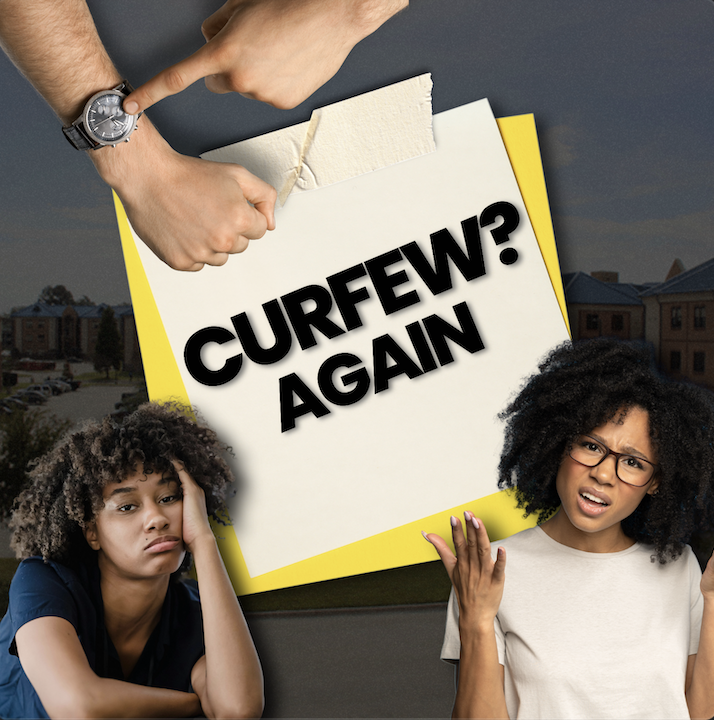
Kaleah Johnson
DIGEST ART
College is often sold as the ultimate escape, no parents, no curfews, just freedom. But in reality, every campus has its own form of control, and here, the administration is the snake in the grass. The illusion shattered when our housing officials quietly enforced a strict 10 p.m. curfew on South Dormitory and campus apartments. Now, students hanging out after hours risk losing their dorm keys, or worse, their housing entirely.
Most college students fall between the ages of 18 and 24, legally adults, many of whom believe they should be treated as such. Yet, a curfew remains in effect for residents of the back dormitory, prompting questions and concerns from students. The curfew was introduced earlier this semester following a large altercation near the basketball court and the street in front of the dining hall. It was later lifted in the weeks leading up to homecoming, suggesting the situation had stabilized. However, the curfew was reinstated last week without a formal announcement or explanation.
To understand the reasoning behind the decision, I reached out to Tracie Abraham, Director of Student Services and Residential Life for University Apartments. As of this writing, no response has been provided.
Chelsea Funchess, a junior majoring in business management, expressed frustration over what she sees as the university’s excessive control. “I thought the point of college was that we were supposed to be becoming adults,” she said. “How can we do that if our university starts micromanaging us? Isn’t that the purpose of living on campus?” Her comments reflect a growing concern among students who feel their independence is being stripped away, especially when housing policies start to resemble high school rules.
En’Finity Bishop, a junior double majoring in risk management and accounting, stated those concerns, emphasizing how the curfew adds to an already overwhelming environment. “We’re still adults,” she said. “Just younger ones.” Bishop described how students are packed into tight living spaces, juggling full course loads, jobs, and extracurriculars. For many, late nights are the only time to decompress. “Sometimes that’s the only peace we get,” she added. “These rules aren’t just inconvenient; they’re making things worse.” From burnout to emotional exhaustion, Bishop said the curfew feels like one more pressure point in a system that’s already pushing students to their limits.
Students say the curfew adds to an already stressful campus life, making them feel trapped in a space meant for growth. Between packed schedules and tight living conditions, many feel their independence slipping. “Everyone is suffering in their own way,” Bishop said a sentiment said by many that live in the back of campus. The real question: how can students thrive if they’re not trusted to live like adults?